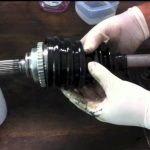
Having an engine blow-by can be frustrating. It can kill the joy of driving because of the different issues the engine will have. These issues will stop you from enjoying your car.
An engine with a blow-by issue should be fixed immediately to avoid causing more damage to the engine. Therefore, how long will an engine last with a blow-by?
How long an engine will last with a blow-by depends on the severity of the blow-by, your driving habits, the age of the vehicle, the vehicle operating temperature, the type of gas you use, and how quickly you fix the blow-by issue.
You should not drive for too long with an engine blow-by to avoid causing more damage to the engine because the longer you drive with a blow-by, the more carbon accumulates in the engine with oil soot and black smoke increment.
How Long Will an Engine Last with Blow-by?
Not too long.

A blow-by is when your piston compression rings are worn out and instead of sealing the inside as it fires, the pressure blows past the piston rings into the crankcase, thereby blowing somewhere else such as the air filter, etc. When this happens, the engine will not last for a long time.
Even if the engine lasts for thousands of miles before breaking down, the problems you will face will be too overwhelming. You will spend more money on gas, more money on oil top-ups, and in the end, incur more damage to the engine.
You should avoid stressing an engine with this issue for too long to avoid accumulating too much carbon that can affect the power and gas mileage of the car.
Factors that Determine How Long an Engine Will Last with Blow-by
The factors that determine how long an engine will last with blow-by are:
1. The Nature of the Blow-by
The nature of the blow-by determines how long the engine will last. The severity of the blow-by is what we are talking about.
No amount is okay but when the issue is not too severe, the engine will last longer than when it is. In this case, a fix is needed to prevent more damage to the engine because the more you ignore the issue, the more the engine is having more problems.
The video below made by the High Performance Academy YouTube channel thoroughly explains how much blow-by is too much.
2. Your Driving Habits
If you’re the type that likes flooring your car when you should not, your engine will not last much longer with blow-by. The more you floor the car, the more you’re forcing the car to work even with the engine issue, this will put more pressure on the engine, hence, reducing the lifespan.
Also, the more drive, the more carbon is accumulated in the engine, so if you ignore the issue and continue flooring your car, sooner or later, the engine will break down.
3. The Age of the Engine
It could have been the age of the vehicle but some vehicles can have an engine swap whereby a damaged engine can be replaced with a good one
Therefore, the engine of the car and how many miles it has accumulated so far will determine whether it will get to 10,000 miles or less before breaking down. If the car is relatively new with a blow-by issue, it may last longer than an engine with almost 250,000 miles.
4. The Vehicle Operating Temperature
The vehicle operating temperature is another factor to consider when wondering how long an engine will last with a blow-by. If the vehicle is having an overheating problem, it will affect the engine and cause it to die earlier than it should.
5. The Type of Fuel Used
The type of fuel you use determines how long the engine will last with blow-by. If you drive a car that recommends premium gas for optimal engine response, and you decide to use a regular gas with a blow-by issue, the engine will be quick to die.
Even if you’re using a diesel engine, you need to use additives that can help the engine. Additives such as FTC Engine Decarbonizer which acts as a combustion catalyst to burn any carbon build-up from combustion and exhaust spaces, turbos, and DPF filters.
You can also use a flushing oil concentrate when completing an oil change to clean your engine. There is detergent in the oil concentrate which flushes and cleans the engine against deposits and oil sludge.
What Causes an Engine Blow-by?
The causes of an engine blow-by are:
- Bad or Worn Out Piston Rings: Since the piston rings were made to seal the gap between the piston and the cylinder wall, when these rings go bad, they will no longer seal the wall as usual, hence, allowing gas to escape into the crankcase during combustion.
- Bad Valve Seals: The same goes for Bad valve seals. Since they are charged with the responsibility of sealing the gap between the valves and the cylinder head, if they fail the seal these gaps, gasses produced during combustion will have no choice but to escape through the gap into the crankcase.
- Carbon Build-ups: This can cause the piston rings and valve seals to seize up, preventing it from functioning the way it is supposed to, thereby causing gas to escape into the crankcase. This can happen if the carbon build-up is left untreated over time.
- The Crankcase Ventilation is not Working Well: Since the crankcase is made in a way that it can release pressure build-ups if it’s unable to do this, the pressure can build up causing an engine blow-by.
- Wear and Tear in the Cylinder Walls: Because of the nature of the cylinder walls and how it works, it can develop wear and tear over the years, if this is the case, it can lead to engine blow-by.
How to Know When You Have Engine Blow-by
Below are the symptoms of engine blow-by:
- High Oil Consumption: You will experience high oil consumption if have an engine blow-by. You will see yourself topping up more oil than usual.
- Excessive or Black Smoke: You will experience excessive black smoke from your exhaust pipe.
- Too Much Carbon Build-up: Because of blow-by, your engine will generate more carbon than usual, and ignoring it can cause more damage to the engine.
- Loss of Power: An engine with a blow-by issue cannot give out the power as it used to. You will obviously suffer a loss of power.
- Poor Gas Mileage: You will start to experience poor gas mileage. You will end up buying more gas or diesel than you used to.
- Knocking Sound: You may also experience a knocking sound while the engine is running which can be disturbing.
What to Do if You Have an Engine Blow-by?
If you have an engine blow-by, start by knowing what caused the problem and have it fixed. Take the car to a mechanic and have them check the cause. After the cause of the blow-by is determined, it should be fixed immediately to avoid causing more damage to the engine.
How Serious is Engine Blow-by?
Engine blow-by is a very serious engine problem that should be fixed immediately after it is diagnosed to avoid causing more damage to the engine.
You can listen to what the famous automotive YouTuber Scotty Kilmer said about the problem in the video below.
Since the problem can make you spend more than you ought to have on oil and gas, then it’s better to fix it while you can.
Will Additives Stop Blow-by?
Yes, additives can stop blow-by if it is not severe and caused by overdue carbon build-up. Using the right additives such as FTC Engine Decarbonizer can stop blow-by since it acts as a combustion catalyst to burn any carbon build-up from combustion and exhaust spaces, turbos, and DPF filters.
You may also need to use oil additives such as Flushing Oil Concentrate when completing an oil change to clean your engine. It can clean the engine and stop blow-by because it has a detergent in the oil that flushes and cleans the engine against deposits and oil sludge.
However, these additives can only work if the cause of the blow-by is as a result of overdue carbon build-up or oil sludge. If the blow-by is a result of wear and tear in the piston rings/cylinder walls, using addictive will not stop the blow-by.
Can Bad Injectors Cause Blow-by?
Bad injectors cannot cause a blow-by except when the injectors are not properly sealed.
What Does Blow-by Smell Like?
“Blow-by smells like oil”.
Conclusion
How long you can drive with an engine blow-by depends on how severe it is. However, irrespective of how severe the problem is, the cause should be determined immediately for a possible fix. You are not advised to drive the vehicle to avoid damaging the engine.









